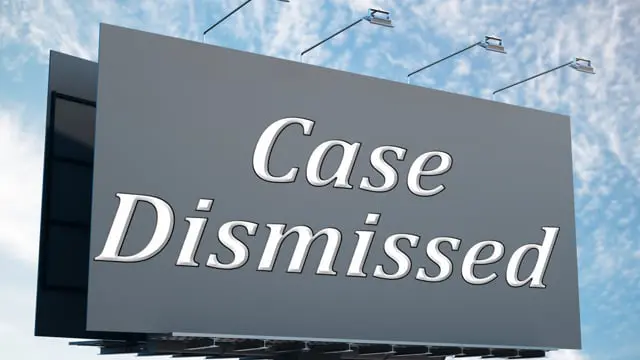It’s crucial to be well-prepared and informed when facing a bail hearing. Understanding the steps involved, managing expectations, and knowing how to prepare can significantly impact the outcome of your hearing. This blog post will guide you through navigating your bail hearing, providing imperative tips and insights to help you through this critical legal process with confidence and poise.
Steps Prior to the Bail Hearing
Hiring a Defense Attorney
Hiring a skilled and experienced defense attorney is crucial when preparing for a bail hearing. Your attorney will understand the legal process, be able to present your case effectively, and advocate for your release. It’s necessary to choose an attorney who specializes in criminal law and has experience with bail hearings. They can guide you through the process, help you understand your rights, and work towards securing a favorable outcome for your case.
Gathering Documents and Evidence
Before your bail hearing, it is important to gather all relevant documents and evidence that can support your case. This may include identification documents, proof of employment, character references, lease agreements, and any other materials that can help demonstrate your ties to the community and show that you are not a flight risk. By presenting a comprehensive set of documents and evidence, you can strengthen your case and increase the likelihood of being granted bail.
Defense attorneys may also advise you to collect any medical records, financial statements, or other documentation that can provide context for the court regarding your circumstances. By being well-prepared with all necessary documents and evidence, you demonstrate to the court that you take the legal process seriously and are committed to following its requirements.
Knowing Your Rights
Legal Rights at a Bail Hearing
Assuming you find yourself in the unfamiliar territory of attending a bail hearing, it is crucial to be aware of your legal rights in this process. Any individual facing a bail hearing has the right to be informed of the charges against them, the right to legal representation, and the right to request a reasonable bail amount based on the circumstances of the case.
The Role of the Eighth Amendment
Rights guaranteed by the Eighth Amendment of the United States Constitution play a significant role in bail hearings. This amendment prohibits excessive bail amounts and cruel and unusual punishments. It ensures that the bail set is not only fair and reasonable but also takes into consideration the financial capabilities of the accused.
The Bail Hearing Process
What to Expect During the Hearing
Despite the nerves and uncertainty that often come with a bail hearing, it is crucial to be prepared and understand the process. During the hearing, the judge will listen to arguments from both the prosecution and defense regarding your eligibility for bail. The prosecutor may present evidence and reasons why bail should be set high or denied, while your defense attorney will advocate for your release on bail. Make sure to pay close attention to the proceedings and address the judge with respect.
Commonly Considered Factors by the Judge
Proceso
- Severity of the alleged crime
- Prior criminal record
This subsection outlines the key factors that the judge will consider when determining your bail eligibility. The severity of the alleged crime will weigh heavily in the decision-making process. A judge will assess the potential danger you pose to the community and whether you are likely to appear for future court dates based on your past criminal record.
- Financial situation and ties to the community
Factors
- Your financial situation and ties to the community will also be evaluated. If you have stable employment, family in the area, or other strong community ties, the judge may be more inclined to grant bail. Demonstrating that you are not a flight risk can significantly impact the judge’s decision in your favor.
How to Prepare for Your Bail Hearing
Preparing Your Testimony
For your bail hearing, it is crucial to prepare your testimony thoroughly. This is your opportunity to present your side of the story and demonstrate to the judge why you deserve to be granted bail. Be honest, clear, and concise in your statement. Focus on relevant information that supports your case, such as ties to the community, employment status, and family responsibilities.
Communicating with Your Defense Attorney
For your bail hearing, effective communication with your abogado defensor is crucial. Your attorney will guide you through the legal process, help you understand your rights, and work to build a strong defense on your behalf. Make sure to provide your attorney with all pertinent information regarding your case, as this will enable them to advocate for the best possible outcome on your behalf.
Defense attorneys are well-versed in the legal system and will be able to strategize the best approach for your bail hearing. Trust their expertise and be open to their advice and counsel throughout the process.
Strategies for a Successful Bail Hearing
Demonstrating Ties to the Community
Many individuals overlook the importance of demonstrating strong ties to the community during a bail hearing. This can be a critical factor in convincing the judge that you are a responsible member of society who is unlikely to flee or pose a threat if released on bail. Showing that you have roots in the community, such as a stable job, family ties, or community involvement, can significantly strengthen your case.
Showcasing a Record of Responsibility
Successful bail hearings often hinge on the ability to showcase a solid record of responsibility. This can include highlighting previous instances where you have complied with court orders, maintained employment, or upheld obligations. Providing concrete examples of your reliability and accountability can go a long way in persuading the judge that you can be trusted to adhere to the conditions of bail and appear for future court dates. Any prior instances where you have handled legal matters in a prompt and responsible manner should be thoroughly documented and presented in a compelling manner.
This approach can demonstrate to the court that you take legal matters seriously and are committed to fulfilling your obligations. By showcasing a record of responsibility, you can significantly bolster your case for being granted bail and gaining your freedom while awaiting trial.
Understanding Bail Conditions
Now, as you navigate through the legal process of a bail hearing, it’s crucial to understand the bail conditions imposed by the court. Bail conditions are rules set by the court that individuals must follow if they are released from custody pending trial. These conditions are designed to ensure the safety of the community, prevent flight risk, and guarantee the individual’s appearance in court.
Common Bail Conditions and Restrictions
Any individual granted bail will typically have conditions or restrictions imposed upon them. Common bail conditions may include surrendering travel documents, adhering to curfews, avoiding contact with certain individuals, refraining from consuming alcohol or drugs, and in some cases, regularly checking in with law enforcement. It’s important to comply with these conditions to avoid legal repercussions.
The Consequences of Violating Bail Conditions
Understanding the consequences of violating bail conditions is crucial. This violation can lead to serious repercussions, including immediate arrest, additional charges, the revocation of bail, and being held in custody until the court date. It’s vital to take bail conditions seriously and adhere to them to maintain your freedom during the pre-trial period.
This illustrates the importance of understanding and abiding by the conditions set forth by the court. By doing so, individuals can increase their chances of a successful bail outcome and avoid potential legal troubles that may arise from non-compliance with bail conditions. It’s imperative to consult with legal counsel if there are any questions or concerns about the bail conditions to ensure full compliance and a smooth legal process.
Post-Bail Hearing Actions
Compliance and Monitoring
Monitoring your compliance with the conditions set at your bail hearing is crucial. This includes adhering to travel restrictions, attending court dates, abstaining from drug or alcohol use if mandated, and any other orders imposed by the court. Failure to comply with these conditions can result in the revocation of your bail and your return to custody. It is vital to take these requirements seriously and stay on top of your obligations to avoid any complications in your case.
Preparing for the Next Steps in Your Case
Actions you can take to prepare for the next steps in your case include staying in touch with your legal counsel, gathering any relevant documents or evidence to support your defense, and familiarizing yourself with the legal process. Understanding what to expect in the upcoming court proceedings and being proactive in your case can help you feel more prepared and in control of the situation. It’s important to be organized and diligent in your efforts to secure the best possible outcome in your legal proceedings.
Para terminar
From above steps, expectations, and preparation tips, it is evident that navigating a bail hearing can be a daunting process. However, by understanding the steps involved, managing expectations, and adequately preparing for the hearing, individuals can increase their chances of a successful outcome. It is crucial to follow legal procedures, present a strong case, and work closely with legal counsel to secure the best possible result.
Keep in mind, a bail hearing is a critical moment in the legal process, and being well-prepared can make all the difference in the outcome. By staying informed, seeking guidance from legal professionals, and remaining composed during the hearing, individuals can navigate the process with confidence and maximize their chances of securing bail.









